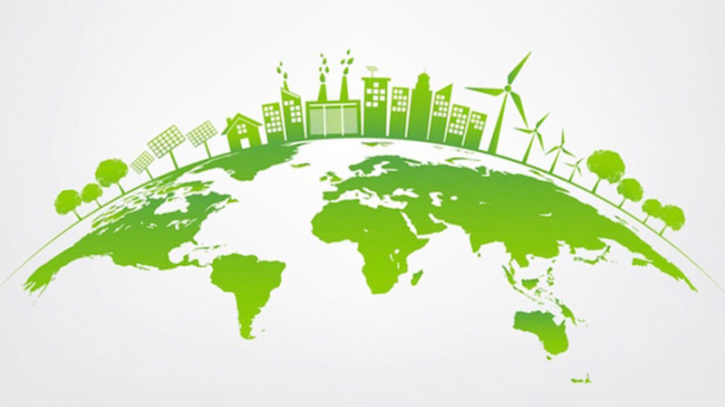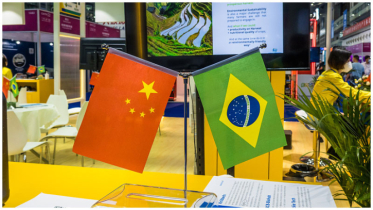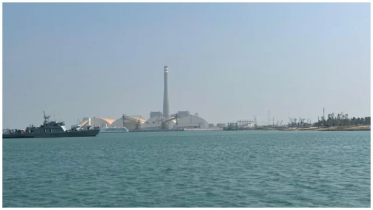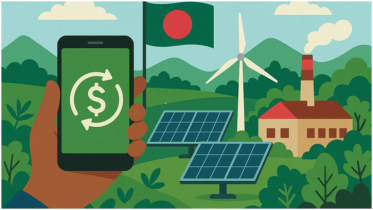A wake-up call for sustainable supply chains

Most of us by now have read about Renewcell, the Swedish recycling technology company that recently filed for bankruptcy. I have followed the textile recycling sector closely in recent years, but—like many—I simply did not see this coming. Or, rather, I did not see Renewcell encountering the kind of difficulties that it did towards the end of 2023, when it became apparent that the company's order book was weakening.
Around that time, many of us began to cross our fingers and pray that things would pick up for Renewcell. The hope was that the company was simply experiencing teething problems, and that market sentiment would soon shift in its favour. The recent decision to file for bankruptcy suggests Renewcell's problems were more profound than we hoped.
So what went wrong and what, if any, lessons can we learn from this? Let's go back to my original point: that Renewcell's demise was very much out of the blue. The business, for those not familiar with its work, developed a process that recycles cotton-rich clothing such as jeans and produces Circulose, a dissolving pulp that can be used to make man-made cellulosic fibres (MMFCs).
These recycled fibres are precisely what fashion brands have been telling the world they want for the past decade. Indeed, many brands have made commitments to include significant proportions of recycled fibres in their clothing collections in the future.
This is why Renewcell has become a darling of the fashion press. Swedish brand H&M invested and became a shareholder in Renewcell in 2017 and signed a five-year, 10,000-tonne deal with the company.
Many other brands and retailers have launched capsule collections containing Circulose. These include Levi's, Inditex (Zara), Ganni, Pangai, Filippa K, and Bestseller (Vero Moda).
But none of this, it would seem, has been enough to protect Renewcell from the volatility of the global fashion industry. Rumours had it that customers would not pay the premium its fibres retailed for. This is interesting, because how many times have we heard that customers will pay extra for more sustainable—recycled, in this case—products? Perhaps it's time to put that phrase to bed. Maybe it's also time to stop taking so seriously the dozens of surveys we see every year claiming that sustainability pays from a business perspective. There is very little evidence of this in fashion supply chains, from what I can see.
What many people are scratching their heads about here is how a business, which achieved global publicity and convinced customers to make huge public commitments, ends up having to declare bankruptcy. I can only surmise that there was small print in these "commitments" that meant they weren't quite the guarantee of market success that they seemed. Perhaps more details will emerge later.
Other lessons and questions spring to mind. Was Renewcell's cost base in Sweden—where wages are among the highest in the world—a barrier to its progress? Should the company have been closer to Asia where there is a greater abundance of waste textiles and the cost of doing business is cheaper? Again, it is impossible to know for sure, but that, in my view, would certainly be a factor worth consideration.
Another thought I had on this is that Asian supply chains have, for many decades, complained that fashion brands say one thing publicly and do something quite differently when it comes to price. Renewcell has found out the hard way how unforgiving fashion supply chains are and how sensitive the market is to even tiny price differences.
Many people have made this point when discussing the company on social media, arguing how unjust it is that Renewcell has not had better support from fashion brands. They make a valid point, but I hope this whole debate will also shine a brighter light on the issue of how fashion brand suppliers across the world are treated—not just those in Europe.
This disconnect between the stated aims of sustainability and what happens in the real world is a global problem. In Bangladesh, for example, it is not always the most progressive, sustainable suppliers who win the business. Price still regularly trumps all and investment in green technologies and cleaner production methods offers no guarantees of success.
In many ways, then, Renewcell's fall from grace is an inflection point for our RMG industry. What type of industry do we want to be? Will we always turn our backs on more sustainable products because they cost a few dollars more? Will others in this field look at Renewcell's experience and get cold feet? Will investors choose to put their money elsewhere? And if so, where does this leave the green agenda?
The dust continues to settle on this issue and, who knows, Renewcell might make an unlikely comeback under different owners or with some fresh investment. I live in hope and remain optimistic, but even I can recognise that our industry has some serious soul-searching to do.
Writer: Mostafiz Uddin, managing director of Denim Expert Limited, also the founder and CEO of Bangladesh Denim Expo and Bangladesh Apparel Exchange (BAE).
Source: The Daily Star.
.png)




